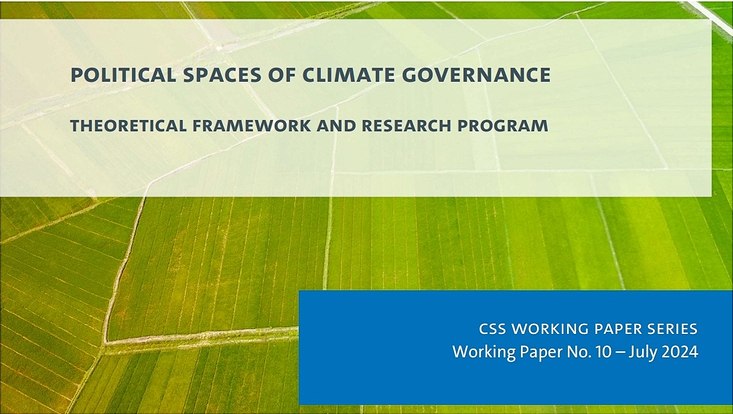Society Research
CSS Working Paper No.9 publishedPolitical Spaces of Climate Governance. Theoretical Framework and Research ProgramFrank Wendler
17 July 2024, by CSS

Photo: CSS/unsplash
The tenth Working Paper in the CSS Working Paper Series has been published..
Political Spaces of Climate Governance. Theoretical Framework and Research Program
Author: Frank Wendler
Abstract: Climate policy-making is currently being transformed by two main dynamics: an expansion of governance frameworks through the proclamation of Green Deal agendas; and a shift and re-framing of climate action as a defining component of green industrial programs linking public investment with zero-carbon conditionality. These dynamics foreground ongoing research debates about the interaction between vectors of policy stability and punctuation as a factor of climate policy: rather than occurring within fixed and clearly identifiable settings and actor networks, dynamics of political conflict and change evolve within and through shifts of the boundaries and rationales of governance processes associated with action against climate change. Implications are felt both within the policy- and politics-dimension: In addition to the impact that dynamics of expansion and re-direction have on the definition of policy goals and choice of policy instruments, they also affect the perception and contestation of climate change as a political issue and perspectives on its politicization. How can a research program be devised that evaluates dynamics of stability and change in the evolution of climate governance frameworks in relation to these developments in a comparative perspective? Addressing this question, the paper proposes a theoretical framework based on the concept of political space as a heuristic analytical device to discuss and relate three components of climate governance that include aspects of scope and dimensionality: namely, its policy space as the evolution of political agendas proposed to deal with the climate crisis; the institutional space as the format of institutional venues that are involved in the negotiation of relevant policy issues; and the discursive space evolving from the depth and issue dimensions of controversy between involved policy-making agents and coalitions. A brief empirical part illustrates the application of this model by reviewing the evolution of climate governance frameworks in the EU and US as contrasting cases of policy stability and disruptive policy change associated with political conflict and contestation.
Keywords: Climate governance, Green Deal, green industrial policy, exogenous shock, European Union, United States, policy stability, politicization


